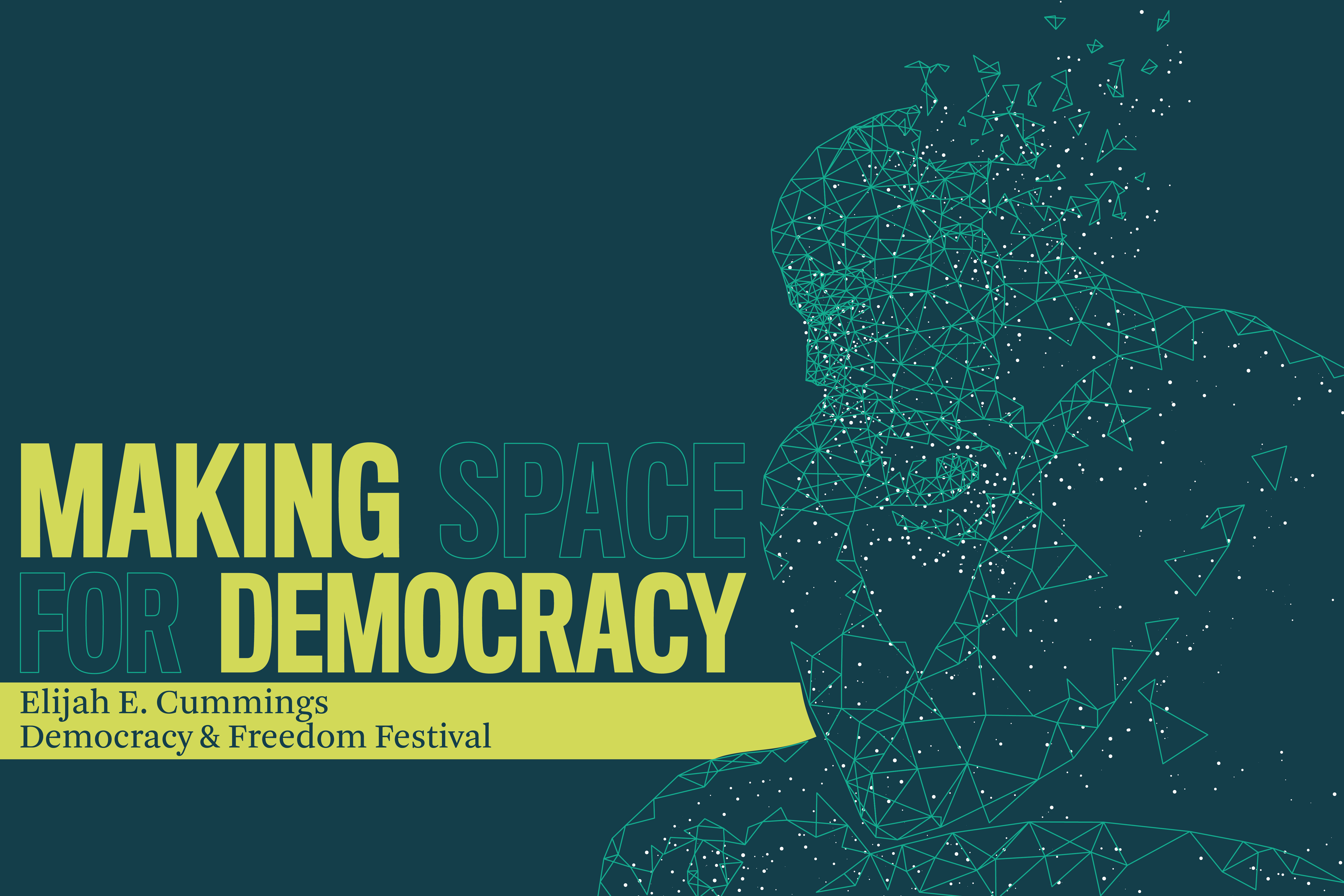
SNF Agora and Open to Debate brought their new co-hosted live debate series, The Hopkins Forum, to Baltimore this week for the first time. Four leading national security and technology experts from across the political aisle gathered on Johns Hopkins University’s Homewood campus to consider a critical geopolitical question: Can the United States outpace China in artificial intelligence through chip controls?
The evening opened with remarks from Johns Hopkins University President Ron Daniels, who emphasized the need for universities to create space for rigorous democratic discourse. “A critical part of our university’s mission is to foster the capacity for those with divergent, yet passionately held views to engage in thoughtful, rigorous dialogue,” Daniels said. “We are thrilled to partner with Open to Debate… and deepen the habits and skills to debate important societal issues in ways that bring us closer to impactful solutions.”
This debate was the second of eight planned Hopkins Forum events over the next two years, held across Johns Hopkins’ campuses in Baltimore and Washington. The first was held in January of this year. Together, these events aim to model evidence-based dialogue on the complex challenges facing democracy, public policy, and global affairs.
Moderated by veteran journalist John Donvan, this week’s debate featured two teams of experts. Arguing in favor of the motion were former Will Hurd, a former CIA officer and U.S. Representative from Texas who was the first member of Congress to seek comprehensive AI legislation, and Lindsay Gorman, Managing Director and Senior Fellow at the German Marshall Fund’s Technology Program. Arguing against the motion were Susan Thornton, former Assistant Secretary of State for East Asian and Pacific Affairs and now Senior Fellow at Yale’s Paul Tsai China Center, and Paul Triolo, Senior Vice President for China and Technology Policy at Albright Stonebridge Group.
Gorman and Hurd argued that chip controls are necessary for a broader strategy to preserve the U.S. lead in AI development. Gorman said such restrictions are “not a silver bullet” but can effectively “squeeze every inch of competitive advantage” out of U.S. leadership. She pointed to the Chinese government’s internal statements acknowledging that chip restrictions are a significant obstacle. She argued that “properly implemented controls can have a compounding effect over time, retarding China’s AI advantages and giving the United States a head start.” She also framed the debate as part of a broader global moment, calling this a “decisive decade” for democratic societies to lead on AI. “If we don’t act now,” she said, “we risk ceding the values that underlie our technologies to authoritarian regimes.”
Hurd’s framing of the issue reflected his deep background in national security and technology policy. “We have to begin with this notion that we are in a conflict,” he said. “They know it. They say it in their materials. Why would we give an edge to our competitor who tries to use that tool against us?”
Thornton and Triolo challenged the effectiveness of chip controls, warning that they may carry significant costs while doing little to slow China’s AI capabilities. Thornton argued that the policy was driven more by domestic political anxieties than strategic calculation. “We’re responding to this through a kind of political impulse in the U.S., driven by fears of China,” she said. “This is completely overblown and unwarranted.” Triolo added that China’s efforts to circumvent chip controls were already producing results. “They have multiple teams now working on advanced lithography,” he said. “They’re going to develop innovations.” He cautioned that far from slowing China down, the controls could accelerate Beijing’s push for technological independence and strain U.S. relationships with allies and global industry partners. He also pointed out that the policy itself lacks clear goals. “There’s never been a statement about what the objective is,” he said. “Is it to destroy China’s AI sector? Is it to slow it down by five years, ten years? That hasn’t been defined.”
During the Q&A session, a Johns Hopkins engineering student asked whether a global agreement on AI development could be sustainable. Hurd and Gorman expressed skepticism, pointing to China’s closed political system and resistance to transparency. Triolo responded that Chinese researchers are already participating in international AI safety efforts and that diplomacy should remain part of the strategy.
The debate reflects the SNF Agora Institute’s mission to model democratic engagement across ideological divides. “We created the Hopkins Forum to be a modern-day agora,” said Hahrie Han, the institute’s inaugural director. “Our goal is to build a public space where people can see that disagreement is not something to fear but something to practice, together, in service of the public good.”
In his closing remarks, Donvan praised the panelists for demonstrating that deeply held disagreement can coexist with mutual respect. “We heard passionate disagreement tonight,” he said, “but we also heard respect—and that’s what this platform is about.”
The full recording of the debate is available through Open to Debate’s national platforms, including public radio broadcasts, podcasts, and YouTube.
Launched in 2025, The Hopkins Forum is a joint initiative between Johns Hopkins University and Open to Debate. The series brings together leading thinkers and practitioners to explore urgent societal questions and invite the public into the university’s intellectual life. Upcoming topics will continue to examine the critical fault lines shaping democracy, from artificial intelligence and free speech to geopolitics and civic resilience.

